Meditation is great; how much better to bring the tranquility that results into your relationships with others. From a longtime student of Buddhism who is also a scientist and a composer.
Library Journal
This book has potential as a text for advanced Buddhist practitioners interested in extending their practice into everyday life to illuminate and improve their relationships.
Publishers Weekly Religion Bookline
Insight Dialogue is beautifully written and wonderfully practical. There is deep healing in these pages.
Christine Northrup, MD, author of Mother-Daughter Wisdom, and Womens Bodies, Womens Wisdom
In this pioneering work, Gregory Kramer breaks new ground in applying the Buddhas teachings to our lives, relationships, and meditative understandings. This book will be of tremendous benefit to all those seeking freedom in their daily lives.
Joseph Goldstein, author of Insight Meditation and One Dharma
Beautifully written and elegantly structured, Insight Dialogue unpacks and enriches practices for extending and deepening our awareness of social interactions in all their complexity, with all their shadow, pain, and promise, in the service of authentic freedom and the humbling realization of deepest connection.
Jon Kabat-Zinn, author of Coming to Our Senses and Arriving at Your Own Door
ABOUT THE BOOK
Insight Dialogue is a way of bringing the tranquility and insight attained in meditation directly into your interactions with other people. Its a practice that involves interacting with a partner in a retreat setting or on your own, as a way of accessing a profound kind of insight. Then, you take that insight on into the grind of everyday human interactions. Gregory Kramer has been teaching the practice (which he originated) for more than a decade in retreats around the world. Its something strikingly new in the world of Buddhist practiceyet its completely grounded in traditional Buddhist teaching.
Kramer begins with a detailed presentation of the central Buddhist teaching of the Four Noble Truths seen through an interpersonal lens. Because dukkha (suffering or unsatisfactoriness) is often most forcefully felt in our relations with others, interpersonal relationships are a wonderfully useful place to practice. He breaks the Noble Truths down into component parts to observe how they manifest particularly in relationship to others, using examples from his own life and practice, as well as from his students. He then goes on to present the practice as its taught in his workshops and retreats. There are a few basic steps to the practice, deceptively simple to describe: (1) pause, (2) relax, (3) open, (4) trust emergence, (5) listen deeply, and (6) speak the truth.
The sequence begins following a period of meditation, and includes periods of speaking, listening, and mutual silence. Kramer includes numerous examples of peoples experience with the practice from his retreats, and shows how the insight gained from the techniques can be brought into real life. More than just testimonials for how well the practice works, the personal stories demonstrate the problems that arise, the different routes the practice can follow, and the sometimes surprising insights that are gained.
GREGORY KRAMER, cofounder and president of the Metta Foundation in Portland, Oregon, has been teaching Insight Meditation since 1980. He developed the practice of Insight Dialogue and has been teaching it since 1995, offering retreats in North America, Asia, Europe, and Australia.
Sign up to learn more about our books and receive special offers from Shambhala Publications.

Or visit us online to sign up at shambhala.com/eshambhala.

INSIGHT DIALOGUE

The Interpersonal Path to Freedom
GREGORY KRAMER

SHAMBHALA
BOSTON & LONDON
2012
SHAMBHALA PUBLICATIONS, INC.
Horticultural Hall
300 Massachusetts Avenue
Boston, Massachusetts 02115
www.shambhala.com
2007 by Gregory Kramer
Cover art 2007 JupiterImages Corporation
All rights reserved. No part of this book may be reproduced in any form or by any means, electronic or mechanical, including photocopying, recording, or by any information storage and retrieval system, without permission in writing from the publisher.
Library of Congress Cataloging-in-Publication Data
Kramer, Gregory
Insight dialogue: the interpersonal path to freedom / Gregory Kramer.1st ed.
p. cm.
Includes bibliographical references.
eISBN 978-0-8348-2444-7
ISBN 978-1-59030-485-3 (pbk.: alk. paper)
1. Religious lifeBuddhism. 2. Interpersonal relationsReligious aspects. 3. BuddhismDoctrines. I. Title.
BQ5395.k73 2007
294.3444dc22
2007015358
In memoriam
Irving Kramer

I dedicate this book to my generous teachers.
The more I mature along the Path, the moregrateful I become for their gifts:
Anagarika Dhammadina
Ananda Maitreya Mahanayaka Thero
Achan Sobin Namto (Bhikkhu Sopako Bodhi)
Punnaji Maha Thero
Contents
Part One


 1
1 
T HE WHOLE of our path of awakening, including the profound contributions of meditation, can be fully integrated with our lives with others. A great deal of our suffering in life is in relationship to other people. We cannot reasonably expect individualistic philosophies and solitary practices to directly address the pain and confusion that arise between two people or in society at large. Nor can we expect solo endeavors to yield a direct path to the rewards of relational ease and insight. What is required is a fundamentally interpersonal understanding of the path and a meditation practice explicitly evolved to take place in relationship with others. This book is about such an understanding and such a path.
We meditate alone but live our lives with other people; a gap is inevitable. If our path is to lead to less suffering, and much of our suffering is with other people, then perhaps we need to reexamine our sole commitment to these individual practices. Meditating alone reinforces an unreflected assumption: that the deep work of awakening is a private affair. From this assumption we build a sense of the pathits overall direction and its particularsthat favors solitary and internal endeavor. Meditating individually, we lack any practice that explicitly addresses the interpersonal realm. We may sense vaguely that something is awry but cannot see what is missing. We are not clear that the personal and interpersonal paths are profoundly connected, nor do we know how easily and even elegantly they can be interwoven. A wider vision is available to us. It is so simple.
Next page
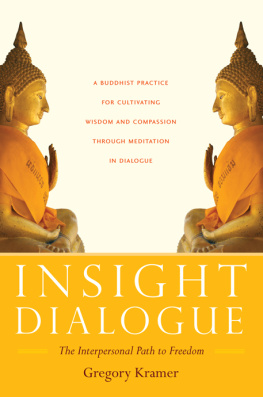

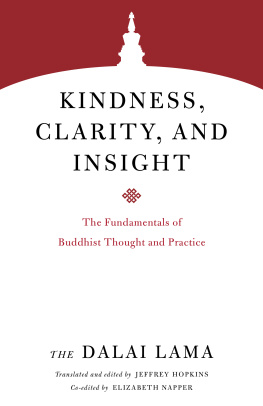
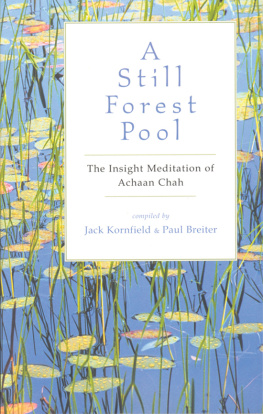
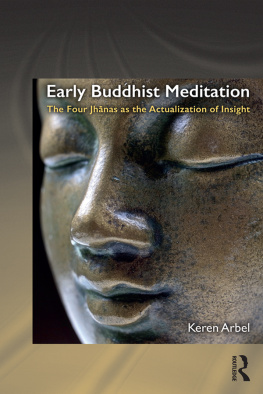
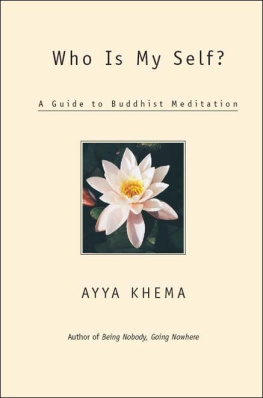
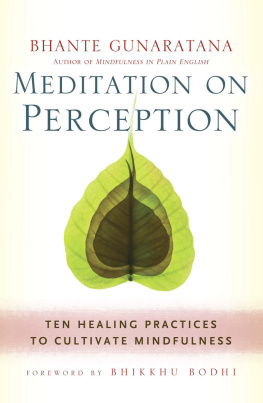
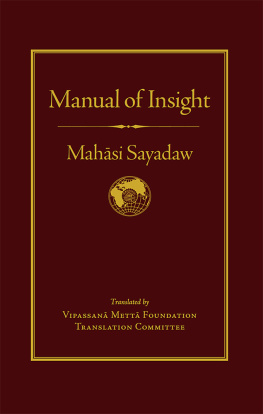
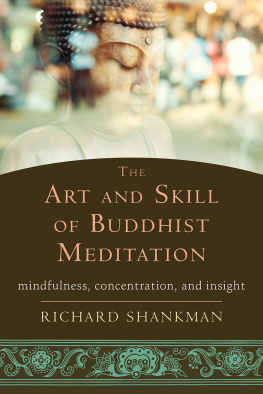
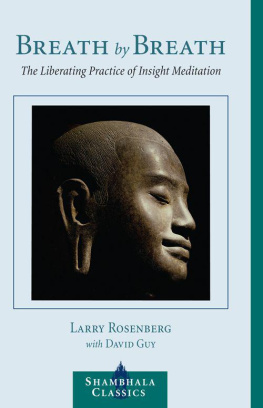




 1
1 